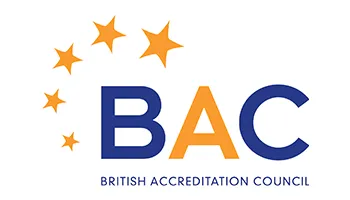.webp)
Exploring the BA (Hons) Integrated Health, Social Care, and Wellbeing with Foundation Year: A Pathway to a Rewarding Career
Published on June 25, 2024 04:19
Overview
The BA (Hons) Integrated Health, Social Care, and Wellbeing with Foundation Year is a comprehensive programme designed to equip students with the knowledge and skills necessary to thrive in the health and social care sectors. Offered by the Organisational Learning Centre (OLC) in partnership with industry experts, this course is structured to provide a solid foundation for those aiming to make a meaningful impact in their communities and beyond. In this blog, we delve into the specifics of the course, the benefits of enrolling, and the diverse career opportunities that await graduates.
Course Overview
Year 1: Laying the Foundation
The first year is dedicated to building a robust foundation in health and social care principles. Key modules include:
- Introduction to Social Sciences in Health and Social Care: This module offers an overview of the social science theories relevant to health and social care.
- Working with Individuals, Organisations & Groups: Students learn the dynamics of working with various stakeholders in the health and social care sectors.
- Equality, Diversity, and Inclusion in Practice: This course emphasises the importance of inclusive practices and policies.
- Introduction to Mental Health and Well-being: A foundational module that introduces the basic concepts of mental health.
- Preparing for Higher Education: Equips students with essential skills for academic success.
- Becoming a Professional: Focuses on the professional standards and ethics required in health and social care.
Year 2: Developing Skills
The second year builds on the foundational knowledge and introduces more specialised topics:
- Academic Study Skills: Enhances critical thinking and academic writing skills.
- Personal Development: Encourages self-reflection and personal growth.
- Investigating Health & Social Care Provision: Students explore the various aspects of health and social care delivery.
- Developing Activities to Promote Well-being in the Community: Practical approaches to enhancing community well-being.
- Work-Related Learning: Provides hands-on experience in real-world settings.
- Making a Difference: Supporting Individuals with Specific Needs: Focuses on tailored support strategies.
- Growing Pains: The Psychology of Childhood and Youth: Examines the psychological development of children and adolescents.
Year 3: Advanced Understanding
In the third year, students engage in advanced modules that deepen their understanding of critical issues:
- Professional Development: Prepares students for leadership roles.
- Health Inequalities and Social Justice in the 21st Century: Addresses contemporary challenges in health equity.
- The Individual across the Life Course: Studies the health and well-being of individuals throughout different life stages.
- Work-Based Learning: Further practical experience in the field.
- Safeguarding and Safe Working Practices: Ensures students are knowledgeable about safety and protection in care settings.
- Under Pressure: The Effects of Mental Health on Well-Being: An in-depth look at mental health issues.
Year 4: Specialisation and Leadership
The final year focuses on specialisation and leadership, culminating in a top-up degree:
- Research Theory and Practice: Equips students with research skills necessary for evidence-based practice.
- Developing Strategies for Health & Well-Being in the Community: Students design and implement community health initiatives.
- Health Policy, Politics, and Power: Analyses the influence of policy and politics on health care.
- Taking Control: Leading, Managing, and Caring in HSC: Prepares students for leadership roles.
- Dissertation: A capstone project that allows students to conduct independent research on a topic of their choice.
Key Benefits of the Course
- Comprehensive Curriculum: The course covers a wide range of topics, providing a holistic understanding of health, social care, and well-being.
- Industry-Relevant Skills: Students gain practical skills through work-based learning and engagement with industry experts.
- Flexible Entry Requirements: The programme welcomes students from diverse backgrounds, including those without traditional qualifications.
- Career Readiness: Graduates are well-prepared for various roles within the health and social care sectors.
- Networking Opportunities: Interaction with guest speakers, lecturers, and peers creates valuable networking opportunities.
Career Opportunities
Graduates of the BA (Hons) Integrated Health, Social Care, and Wellbeing program are equipped to pursue a wide array of careers. The programme's comprehensive curriculum and practical learning experiences prepare students for various roles that make significant contributions to health and social care sectors.
Health and Social Care Manager
Health and Social Care Managers play a pivotal role in ensuring the smooth operation of care facilities, including hospitals, nursing homes, and community health centres. These professionals are responsible for overseeing daily activities, managing staff, and ensuring that care standards are met. Their duties also involve budgeting, strategic planning, and liaising with other healthcare providers and organisations to ensure the best possible care for patients. With the skills acquired from this programme, graduates can effectively lead teams, implement policies, and improve service delivery in various health and social care settings.
Community Health Worker
Community Health Workers (CHWs) are essential in promoting health and well-being within local communities. They act as a bridge between the community and health services, helping to ensure that people receive the care they need. CHWs conduct outreach activities, provide health education, and support individuals in navigating the healthcare system. They also play a critical role in addressing health disparities by reaching underserved populations and advocating for community needs. The programme equips graduates with the knowledge and skills to design and implement community health programmes, conduct needs assessments, and engage with diverse populations effectively.
Mental Health Support Worker
Mental Health Support Workers provide crucial support to individuals experiencing mental health issues. They work in various settings, including hospitals, community centres, and residential care facilities. Their responsibilities include offering emotional support, assisting with daily activities, facilitating therapy sessions, and helping clients develop coping strategies. Mental Health Support Workers also collaborate with healthcare professionals to create individualised care plans. Through this programme, graduates gain an understanding of mental health conditions, therapeutic approaches, and the importance of empathy and patience in supporting individuals on their journey to recovery.
Policy Advisor
Policy Advisors in the health and social care sectors play a strategic role in shaping and influencing policies that impact public health and well-being. They conduct research, analyse data, and provide evidence-based recommendations to policymakers. These professionals work for government agencies, non-profit organisations, and advocacy groups. Their goal is to develop policies that improve health outcomes, ensure equitable access to services, and address social determinants of health. Graduates of this programme are well-prepared to engage in policy analysis, advocacy, and strategic planning, making them valuable assets in the efforts to create effective and fair health and social care policies.
Researcher
Researchers in the health and social care fields conduct studies to advance knowledge and improve practices. They design and carry out research projects, analyse data, and disseminate findings through reports and publications. Researchers work in academic institutions, research organisations, and healthcare settings. Their work is vital in identifying effective interventions, understanding health trends, and informing evidence-based practices. The programme provides graduates with a strong foundation in research methodologies, critical thinking, and analytical skills, enabling them to contribute to the advancement of knowledge and innovation in health and social care.
Conclusion
The BA (Hons) Integrated Health, Social Care, and Wellbeing with Foundation Year at OLC is more than just an academic programme; it’s a pathway to making a tangible difference in the world. With a blend of theoretical knowledge, practical skills, and professional development, students are well-equipped to embark on rewarding careers that contribute to the well-being of individuals and communities. Whether you are just starting your academic journey or looking to advance your career, this course offers the tools and opportunities to succeed in the dynamic field of health and social care. Enrol today and take the first step towards a fulfilling career dedicated to improving lives.











